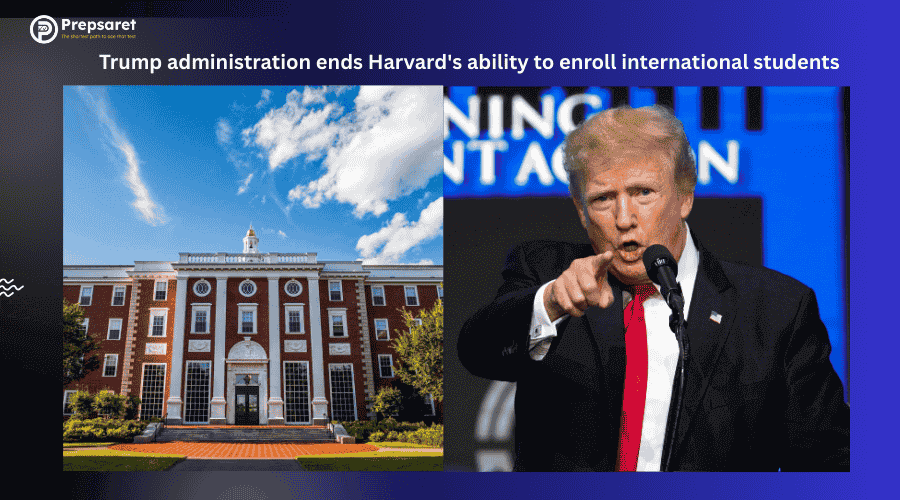Key Points:
- Homeland Security has revoked Harvard’s ability to enroll international students for the 2025–2026 academic year.
- The decision affects over 6,700 students and requires current visa holders to transfer or leave the U.S.
Harvard condemned the move as unlawful and retaliatory, pledging legal and institutional support.
In a dramatic escalation of its ongoing battle with Harvard University, the Trump administration on Thursday revoked the institution’s certification to host international students, effectively barring one of the world’s most prestigious universities from enrolling foreign nationals in the upcoming academic year.
Homeland Security Secretary Kristi Noem announced that Harvard’s Student and Exchange Visitor Program (SEVP) certification was terminated, citing the university’s alleged failure to comply with federal reporting requirements and accusations of “fostering antisemitism, violence, and coordination with the Chinese Communist Party.”
“This is the unfortunate result of Harvard’s refusal to meet its obligations,” Noem wrote in a letter posted to X. “Consequences must follow for universities that promote anti-American ideologies and refuse lawful cooperation with federal authorities.”
Under the order, Harvard is prohibited from enrolling students on F-1 and J-1 visas for the 2025–2026 academic year. Current international students must transfer to another institution to maintain their legal status or face deportation, Homeland Security said.
The university swiftly condemned the move as unlawful and retaliatory, stating that it would take immediate steps to support its affected student body and pursue legal remedies.
“This retaliatory action threatens serious harm to the Harvard community and undermines our academic and research mission,” the university said in a statement. “We are fully committed to protecting the rights of our international students and scholars from over 140 countries.”
Find Out: Does Harvard Accept GED
Harvard currently hosts more than 6,700 international students, comprising approximately 27% of its total enrollment. The decision has caused widespread distress among students and faculty alike, many of whom are now grappling with uncertainty just days before graduation ceremonies.
“I never imagined ending my Harvard experience like this,” said Leo Gerdén, a graduating student from Sweden. “We’re being used as pawns in a political feud. It’s deeply unsettling.”
Faculty also expressed concern over the impact on academic collaboration and institutional reputation. Pippa Norris, a professor at Harvard Kennedy School, noted that a majority of her students are international. “This will devastate our classrooms and undermine America’s role in global academic leadership,” she said.
The policy shift follows months of intensifying conflict between Harvard and the Trump administration, which previously froze billions in research grants and demanded sweeping changes to campus policy, hiring, and curriculum in response to alleged antisemitism and ideological bias.
Legal analysts suggest Harvard could challenge the revocation in court, citing First Amendment protections and administrative overreach.
As tensions rise, officials warn other institutions may soon face similar actions. “Let this serve as a warning to all universities,” Noem said.
The fallout has drawn international attention and could reshape the landscape of higher education in the U.S. as universities brace for further federal crackdowns.
Also in the News:

